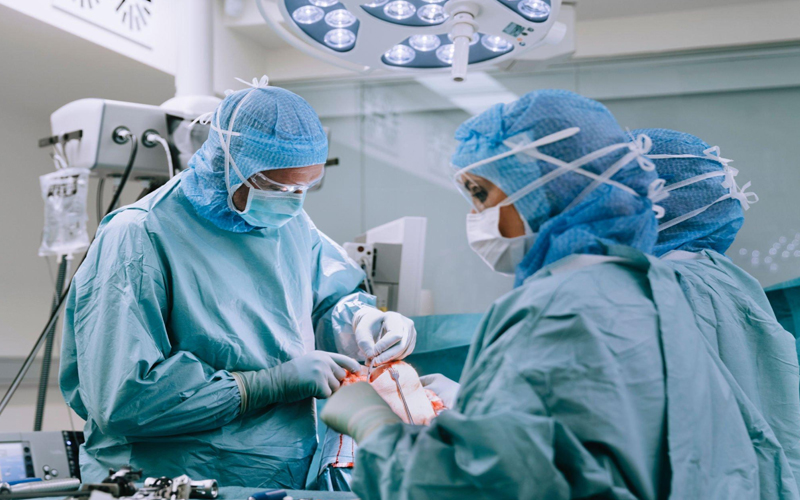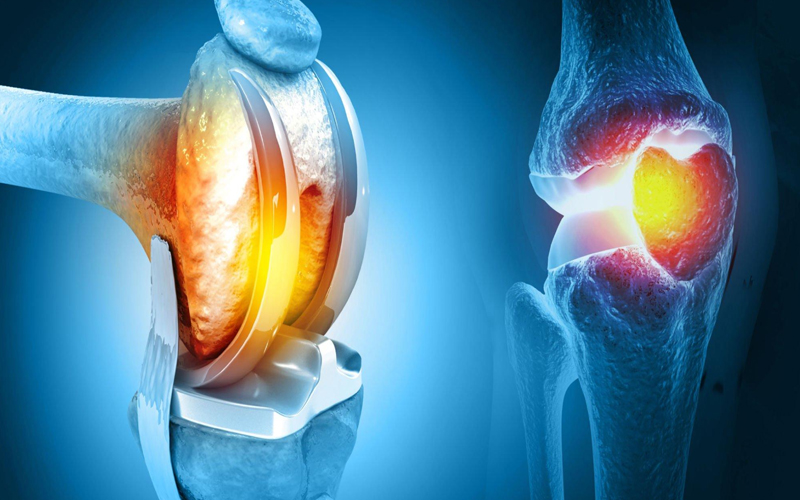
During knee replacement surgery, damaged or worn-out knee joint components are replaced. The procedure may improve the knee's functionality and reduce pain. Damaged bone and cartilage are substituted during surgery with plastic and metal components. A surgeon will evaluate your knee's endurance, rigidity, and flexibility in motion to determine whether or not you should have a knee replacement. X-rays can assist in determining the degree of damage.
Your age, weight, degree of exercise, the size and form of your knees, and general health will determine the best replacement joints and surgical procedures for you.
Why is Knee Replacement done?
The most frequent justification for knee replacement surgery is to relieve arthritis discomfort. Those who require knee replacement surgery frequently struggle to stand up from a chair, walk up steps, and climb stairs.
Surgeons can frequently replace just the injured portion of the knee if it only has one damaged area. The thigh bone and shinbone ends are transformed, and the entire joint is returned, if the complete joint requires replacement. These bones are made up of rigid tubes with soft centers. The prosthetic components' ends are put into the softer middle region of the bones.

Ligaments are tissue strands that support the stability of joints. The surgeon may decide on implantation that can be attached so they can't break apart if the tendons and ligaments in the knee aren't sufficiently durable to keep the joint together on their own.
Best knee replacement doctors in India
Dr. Raju Vaishya, Dr. Subhash Jangid, Dr. Rajeev Verma, Dr. V.A. Senthil Kumar, Dr. Harshvardhan Hegde, Dr. Gurinder Bedi is the best knee replacement doctor in India.
My Care India achieves it through a strategic combination of primary care as well as support services, exemplifying the advantages of medical tourism in India.
What you can expect from the knee surgery
You will be required to take off your clothing and put on a hospital gown when you sign in for your procedure. Either a spinal block, which calms the lower half of your body, or a general anesthetic, which induces a state resembling sleep, will be administered to you. A numbing medication may also be injected by the surgeon into the joint or near it to assist reduce discomfort following surgery.
Throughout the knee surgery treatment
An average knee replacement procedure lasts one to two hours. The surgeon does the surgery by:
- Creating a cut across the knee
- Removes infected, damaged, and cartilage-containing bone, preserving healthy bone unharmed
- Fuses the new components to the kneecap, shinbone, and thighbone
After the knee replacement surgery
You will spend some time recovering in the healing area after surgery. The length of your hospital stay following surgery will vary depending on your specific requirements. On an identical day, many folks can return home.
Following knee replacement surgery, there is an increased risk of blood clots. You might have to: avoid this complication:
- Shortly following surgery, you'll be urged to sit up and use legs or a walker to walk
- You could use inflated air sleeves or elastic pressure tights on your lower legs before and following surgery. Your legs are compressed and released by the air sleeves. That lessens the possibility of clot formation by preventing blood from collecting in the leg veins
- After surgery, your surgeon might advise taking an oral or injectable blood thinner. You may require a blood thinner for a while following surgery, based on how quickly you walk, how energetic you are, and your general likelihood of blood clots
Additionally, you'll be instructed to perform regular breathing exercises and progressively increase your rate of activity. You can learn how to stretch out your new knee from a physical therapist. You'll probably undergo physical therapy at your residence or at a facility after you depart the hospital.






